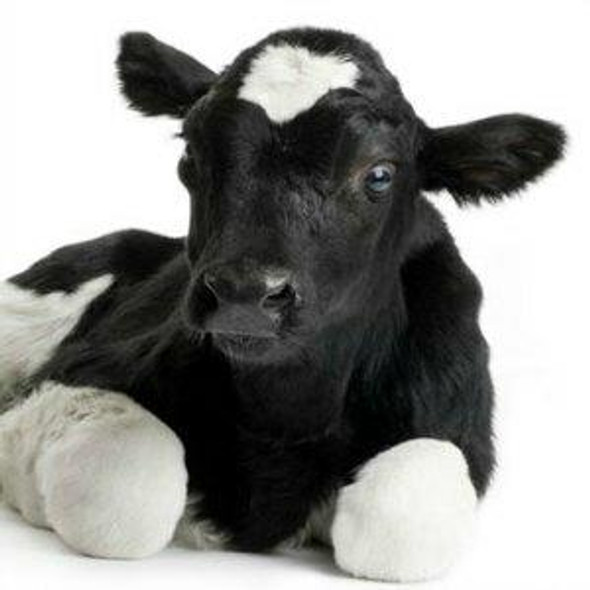Anti-TGF beta Receptor II Antibody (CAB19124)
- SKU:
- CAB19124
- Product type:
- Antibody
- Reactivity:
- Human
- Host Species:
- Rabbit
- Isotype:
- IgG
- Research Area:
- Cell Death
Description
| Antibody Name: | Anti-TGF beta Receptor II Antibody |
| Antibody SKU: | CAB19124 |
| Antibody Size: | 20uL, 50uL, 100uL |
| Application: | WB |
| Reactivity: | Human |
| Host Species: | Rabbit |
| Immunogen: | A synthesized peptide derived from human TGF beta Receptor II |
| Application: | WB |
| Recommended Dilution: | WB 1:500 - 1:2000 |
| Reactivity: | Human |
| Positive Samples: | HepG2 |
| Immunogen: | A synthesized peptide derived from human TGF beta Receptor II |
| Purification Method: | Affinity purification |
| Storage Buffer: | Store at -20°C. Avoid freeze / thaw cycles. Buffer: PBS with 0.02% sodium azide, 0.05% BSA, 50% glycerol, pH7.3. |
| Isotype: | IgG |
| Sequence: | Email for sequence |
| Gene ID: | 7048 |
| Uniprot: | P37173 |
| Cellular Location: | |
| Calculated MW: | 80kDa |
| Observed MW: | 70-80kDa, 90kDa |
| Synonyms: | AAT3, FAA3, LDS1B, LDS2, LDS2B, MFS2, RIIC, TAAD2, TGFR-2, TGFbeta-RII, TGF beta Receptor II, TGFBR2 |
| Background: | This gene encodes a member of the Ser/Thr protein kinase family and the TGFB receptor subfamily. The encoded protein is a transmembrane protein that has a protein kinase domain, forms a heterodimeric complex with another receptor protein, and binds TGF-beta. This receptor/ligand complex phosphorylates proteins, which then enter the nucleus and regulate the transcription of a subset of genes related to cell proliferation. Mutations in this gene have been associated with Marfan Syndrome, Loeys-Deitz Aortic Aneurysm Syndrome, and the development of various types of tumors. Alternatively spliced transcript variants encoding different isoforms have been characterized. [provided by RefSeq, Jul 2008] |
| UniProt Protein Function: | TGFBR2: a TKL kinase of the serine/threonine-protein kinase receptor (STKR) family. R1 and R2 TGF-beta receptors dimerize after binding TGF-beta at the cell surface. Binds to DAXX. Defects can cause esophageal cancer. |
| UniProt Protein Details: | Protein type:Oncoprotein; Membrane protein, integral; Protein kinase, TKL; EC 2.7.11.30; Protein kinase, Ser/Thr (receptor); Kinase, protein; TKL group; STKR family; Type2 subfamily Chromosomal Location of Human Ortholog: 3p22 Cellular Component: caveola; cytosol; external side of plasma membrane; integral to membrane; lipid raft; plasma membrane; receptor complex Molecular Function:ATP binding; glycosaminoglycan binding; metal ion binding; mitogen-activated protein kinase kinase kinase binding; protein binding; receptor signaling protein serine/threonine kinase activity; SMAD binding; transforming growth factor beta binding; transforming growth factor beta receptor activity; transforming growth factor beta receptor activity, type II; transmembrane receptor protein serine/threonine kinase activity Biological Process: activation of protein kinase activity; aging; apoptosis; blood vessel development; brain development; common-partner SMAD protein phosphorylation; embryo implantation; embryonic cranial skeleton morphogenesis; embryonic hemopoiesis; gastrulation; gut development; heart development; in utero embryonic development; lens development in camera-type eye; myeloid dendritic cell differentiation; negative regulation of cardiac muscle cell proliferation; negative regulation of transforming growth factor beta receptor signaling pathway; Notch signaling pathway; organ regeneration; palate development; patterning of blood vessels; peptidyl-serine phosphorylation; peptidyl-threonine phosphorylation; positive regulation of angiogenesis; positive regulation of B cell tolerance induction; positive regulation of cell proliferation; positive regulation of mesenchymal cell proliferation; positive regulation of NK T cell differentiation; positive regulation of skeletal muscle regeneration; positive regulation of smooth muscle cell proliferation; positive regulation of T cell tolerance induction; positive regulation of tolerance induction to self antigen; protein amino acid phosphorylation; receptor-mediated endocytosis; regulation of cell proliferation; regulation of gene expression; response to drug; response to estrogen stimulus; response to glucose stimulus; response to mechanical stimulus; response to nutrient; smoothened signaling pathway; transforming growth factor beta receptor signaling pathway; vasculogenesis; wound healing Disease: Colorectal Cancer, Hereditary Nonpolyposis, Type 6; Esophageal Cancer; Loeys-dietz Syndrome 2 |
| NCBI Summary: | This gene encodes a member of the Ser/Thr protein kinase family and the TGFB receptor subfamily. The encoded protein is a transmembrane protein that has a protein kinase domain, forms a heterodimeric complex with another receptor protein, and binds TGF-beta. This receptor/ligand complex phosphorylates proteins, which then enter the nucleus and regulate the transcription of a subset of genes related to cell proliferation. Mutations in this gene have been associated with Marfan Syndrome, Loeys-Deitz Aortic Aneurysm Syndrome, and the development of various types of tumors. Alternatively spliced transcript variants encoding different isoforms have been characterized. [provided by RefSeq, Jul 2008] |
| UniProt Code: | P37173 |
| NCBI GenInfo Identifier: | 116242818 |
| NCBI Gene ID: | 7048 |
| NCBI Accession: | P37173.2 |
| UniProt Secondary Accession: | P37173,Q15580, Q6DKT6, Q99474, B4DTV5, |
| UniProt Related Accession: | P37173 |
| Molecular Weight: | 67,457 Da |
| NCBI Full Name: | TGF-beta receptor type-2 |
| NCBI Synonym Full Names: | transforming growth factor beta receptor II |
| NCBI Official Symbol: | TGFBR2 |
| NCBI Official Synonym Symbols: | AAT3; FAA3; LDS2; MFS2; RIIC; LDS1B; LDS2B; TAAD2; TGFR-2; TGFbeta-RII |
| NCBI Protein Information: | TGF-beta receptor type-2 |
| UniProt Protein Name: | TGF-beta receptor type-2 |
| UniProt Synonym Protein Names: | TGF-beta type II receptor; Transforming growth factor-beta receptor type II; TGF-beta receptor type II; TbetaR-II |
| Protein Family: | TGF-beta receptor |
| UniProt Gene Name: | TGFBR2 |
| UniProt Entry Name: | TGFR2_HUMAN |










